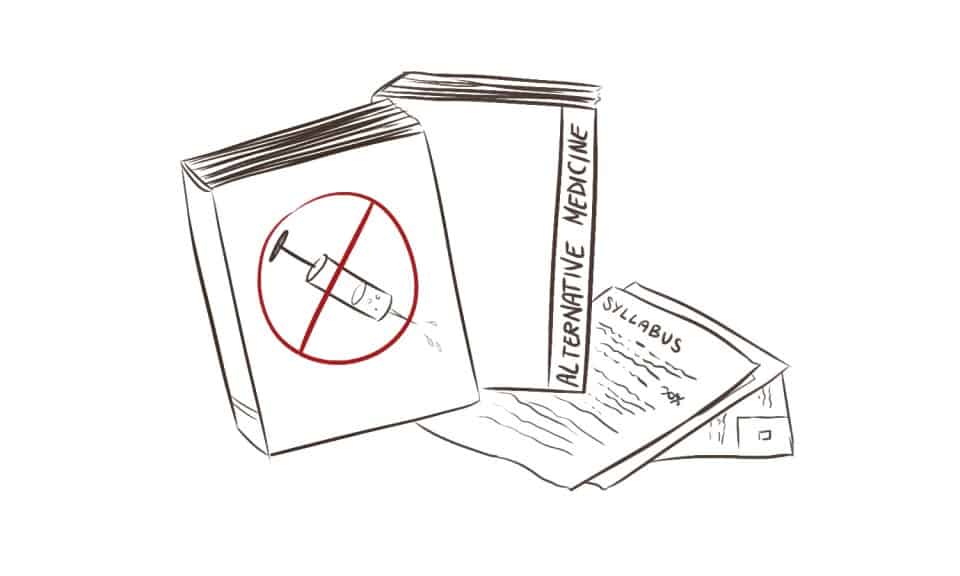Earlier this month, U of T’s provost published a statement from vice-president Goel that regarded Professor Landau-Halpern’s controversial anti-vaccine and pro-homeopathy course. It stated that “the…instructor’s approach in the class towards the issue of immunization in particular had not been unbalanced”.
The ensuing outrage at U of T’s response is understandable. As a physics student, I cringe every time a homeopathy advocate mentions quantum physics. Nor do I believe that this course is of the quality we expect from U of T. The lack of academically rigorous material in the readings is troubling, to say the least.
Yet, public fury is directed at two points: one, that U of T is allowing the teaching of “bad science”, and two, that teaching this bad science is unsafe.
I don’t think the factual correctness of teaching is as important to a university’s mission as most people believe. The goal of a university, first and foremost, is to educate – that is, to teach students how, rather than what, to think.
In furthering this goal, it is much more important that universities encourage all forms of discourse, controversy, and debate, rather than to simply feed students facts. It is always the discourse surrounding those facts that matters most.
For instance: though long discredited, Freudian psychoanalysis is still taught in great depth and subject to intensive academic research. For what reason is this the case if not to advance the study of inquiry itself?
This is not to mention that good science is not inherently important to a good education. You cannot hope to learn much from a religious studies course constrained to the scientific mindset. An anthropology student would surely develop a different worldview than a scientist, but the education itself is of no lesser value.
Professor Landau-Halpern was teaching an anthropology course, not a science one. Anthropology has its own methodologies and processes of inquiry, and the scientific process is simply not relevant there.
Muzzling an anthropology course on the basis that it is “bad science” is absurd— it sets a dangerous precedent that could place dangerous limitations on legitimate academic discussion and inquiry. It doesn’t make a difference that the course makes scientific assertions. Ideas regularly come up in academia that defy logical plausibility, which still leads to interesting discussions. As such, the decision to cease this course cannot be made on the basis of poor science alone.
The only argument then, is that this course has the potential to cause real harm. But I think the harm itself is minimal — not nearly enough to justify the cost of cancelling it. I do not think many people will take an anthropology course on alternative medicine seriously from a scientific standpoint.
History has repeatedly shown the value of controversial and incorrect ideas, in furthering the academic discussion. Discourse of all sorts must not be discouraged, and academics hold this principle dear. It is central to the idea of academic freedom that neither “controversial” nor “unsafe” ideas should be left behind.
Jeremy Li is a third–year student at University College studying physics.


